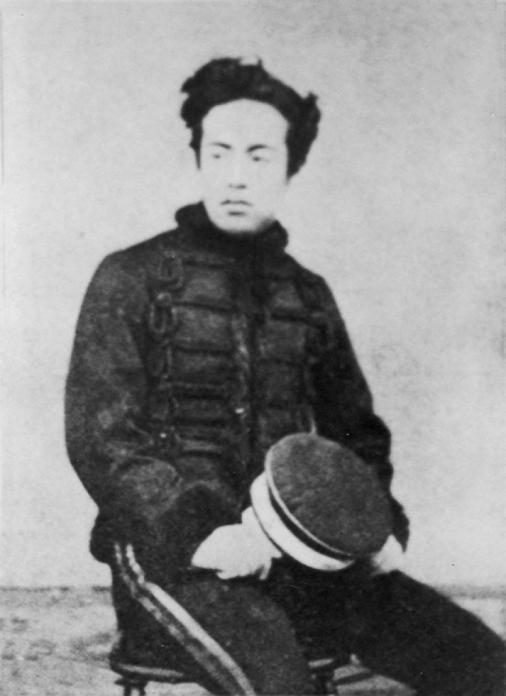
ED
Kisuke Nogi (circa 1873)
Nogi Maresuke Nogi Maresuke 1849-1912 Place of birth: Tokyo General of the Army Born into a Choshu clan family, studied at the Meirinkan Literary School, and did not participate in the Boshin War. 1877, his military flag was taken by Saigo's army in the Satsuma Civil War. 1894, the Sino-Japanese War, 1904, the Russo-Japanese War, he was responsible for the invasion of Lushun. During the Russo-Japanese War, his eldest son, Lieutenant Katsunori, and second son, Major Yasunori, were killed in action. After the Russo-Japanese War, General Nogi was appointed Director of the Gakushuin Academy by the Emperor Meiji. Having benefited from the generosity of Emperor Meiji, Nogi lost two sons in the Russo-Japanese War, and on September 13, 1912, the day of Emperor Meiji's grand funeral, Kisunori Nogi and his wife Shizuko followed him to his death as martyrs. In their suicide note, they dared to cite the loss of their regimental flag in the Civil War as the reason for their suicide, rather than their guilt in the Sino-Japanese and Russo-Japanese wars. General Nogi's martyrdom came as a great shock to all of Japan. Mori Ogai, who had served in the Russo-Japanese War as a military doctor, questioned the meaning of martyrdom in following one's lord in his first historical novel, "Okitsu Yagoemon no Issho. Soseki Natsume was also shocked by Nogi's death and wrote "Kokoro. The photo was taken at Kanazawa Brigade in 1873, when Nogi was a major. (Photo by Kingendai Photo Library/AFLO)
Details
ID
32742651
Collection
License type
Editorial
Photographer
Creation date
12-02-2016
Contact Aflo for all commercial uses.

More
Top Categories
